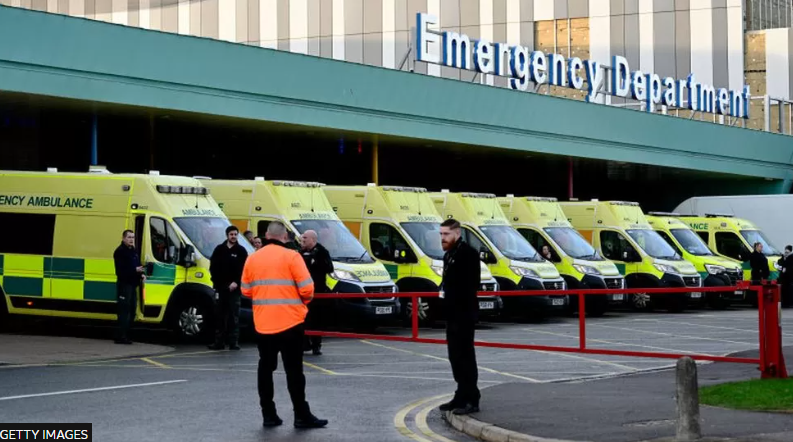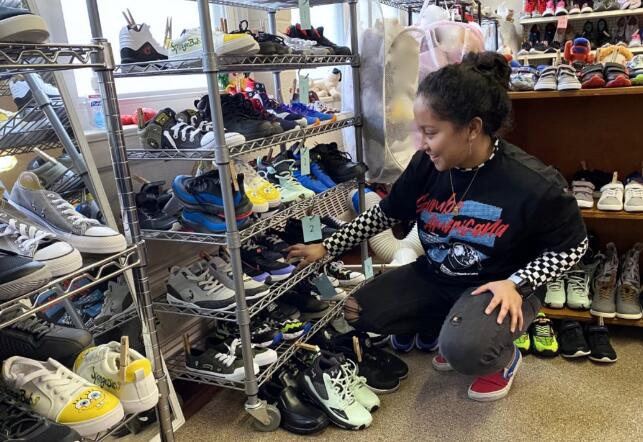Patient safety cannot be guaranteed during today’s strike by ambulance workers in England and Wales, health bosses have warned.
But NHS England says emergency care will continue to be provided.
People are being asked to use services “wisely” and only call 999 in a life-threatening emergency – with 111 online the first port of call.
Ambulance response times are already twice as long as two years ago and there is a huge strain on A&Es.
In England, eight out of the 10 major ambulance services have declared critical incidents – a sign of the intense pressure they are already under.
Ministers have urged the public to take extra care and suggested they avoid contact sports and unnecessary car journeys.
Unions say life-threatening callouts will continue to be responded to over the next 24 hours but some urgent calls, for example for late-stage labour or a fall in the home, might not be answered.
- What calls will ambulances answer on strike day?
- Nurses’ strike: ‘If we have to, we’ll continue to strike’
- Sunak refusing to budge on pay as strikes escalate
No industrial action is taking place in Northern Ireland and Scotland, and there will be no strikes in the east of England or the Isle of Wight.
But elsewhere, there is likely to be major disruption as paramedics, call handlers, emergency care assistants and technicians go on strike.
About 750 armed forces staff are being drafted in to cover the walkouts, however their role will be limited. They will not be sent on call-outs involving critical care, nor will they provide any clinical care.
In the run-up to the strike, rhetoric from both sides has intensified.
Writing in the Daily Telegraph, Health Secretary Steve Barclay said: “We now know that the NHS contingency plans will not cover all 999 calls. Ambulance unions have made a conscious choice to inflict harm on patients.”
But Rachel Harrison, national secretary of the GMB Union, accused the government of insulting NHS staff by claiming they are making a conscious choice to inflict harm on patients.
Union members had been forced into action and did “not taken the decision lightly”, she told BBC Breakfast.
She said earlier that ambulance staff were tired of spending all day outside a hospital with a patient because of delays in handing over patients to A&E. They often did not know whether patients would “still be alive” when they reached them after a callout.
“We’ve been raising these issues for years and [have] been ignored,” she added.
In a letter to the prime minister, the NHS Confederation, which represents healthcare systems in England, Wales and Northern Ireland, said there was now “deep worry among NHS leaders about the level of harm and risk that could occur to patients”.
“This is not something NHS leaders would ever say lightly,” the letter stated, “but many now tell us that they cannot guarantee patient safety”.
The letter has now also been signed by NHS Providers, the body which represents hospital trusts, mental health and ambulance services.



